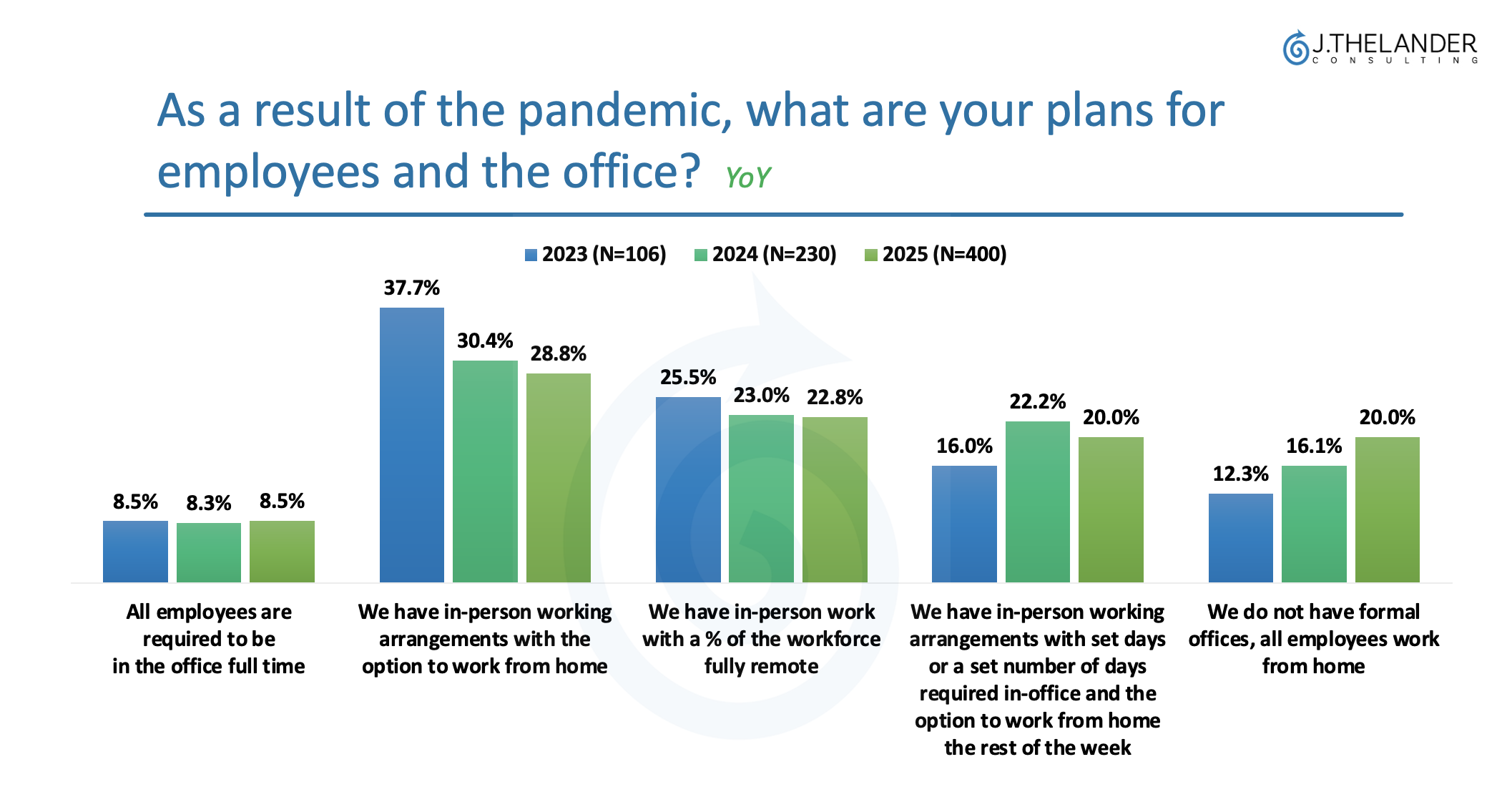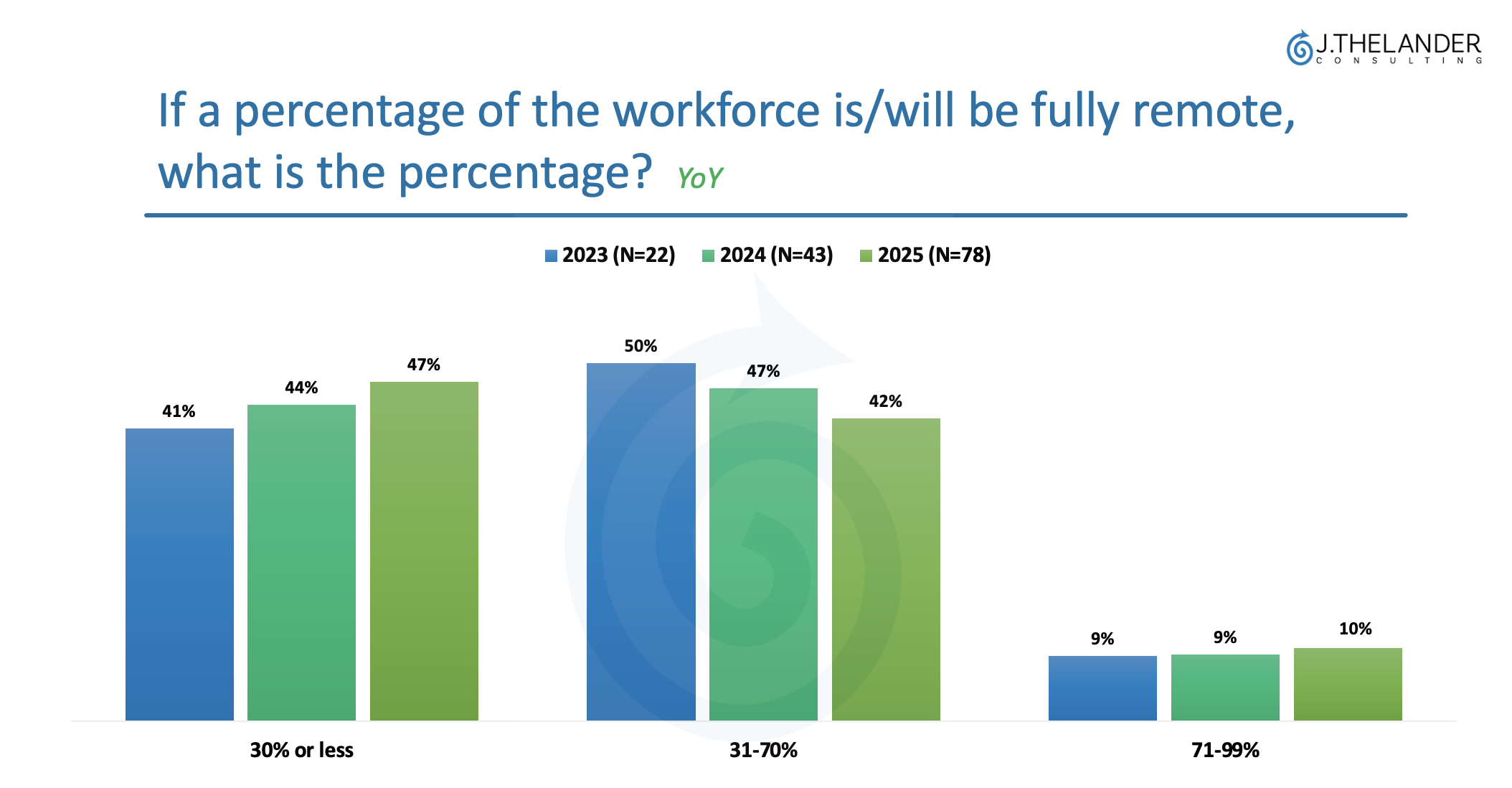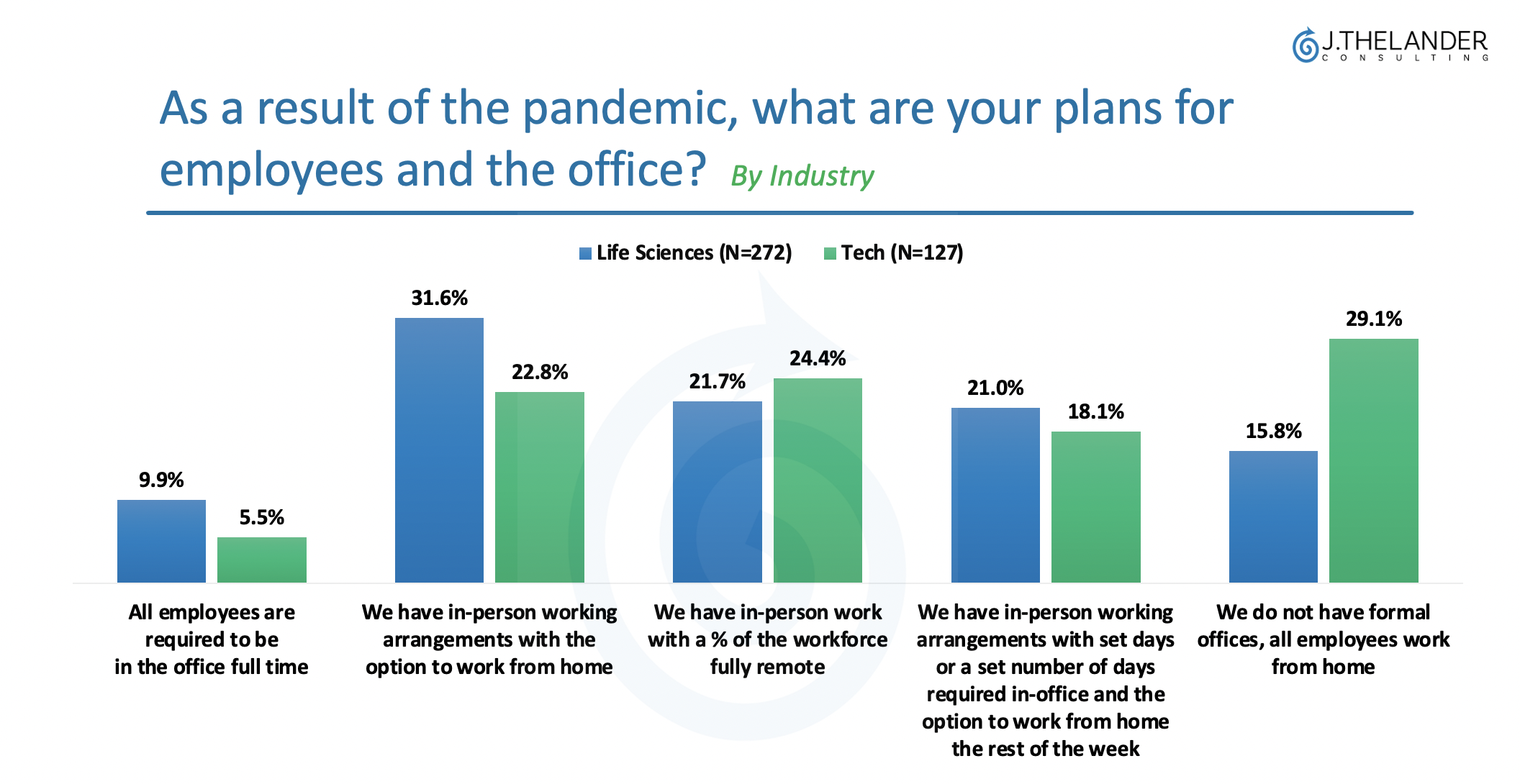Thelander PC Digest: June 2025
Private Companies Buck Return to Office Trends
The federal government and big tech companies like Google, Amazon and Apple have issued return-to-office mandates for many employees, either on a full-time or hybrid (two or three days in the office) basis.
Surprisingly, many privately held companies across life sciences and tech remain remote or hybrid, according to our data at J.Thelander Consulting. This is an important issue to explore; many top employees prefer to work remotely or have flexibility with their schedules.
For the past three years, Thelander has surveyed private companies on their remote work policies. So, what are the key takeaways for 2025?
One-in-5 Companies Lack Formal Offices

“In general, the number of private companies where employees are required to be in the office full time has remained stable since 2023.” Jody Thelander, Founder & CEO, points out. “We’re not seeing a difference in compensation for those people whether they work remotely or in-person. It depends more on the skill set and the value of their role to the organization.”
As companies recognize the benefits of a remote or hybrid workforce, including reduced overhead and increased employee satisfaction, many have adopted flexible policies that give employees choices in how they structure their work week.
Hybrid Policies: Most Popular
More companies (28.7%) have in-person working arrangements with an option to work from home. While this percentage decreased over the past two years, it still represents the most popular policy.
20% of private companies have no formal offices, a significant increase since 2023.
Only 8.5% require their entire workforce to be in the office full-time.
42% of companies have some sort of hybrid arrangement, either with a % of the workforce fully remote or employees required to spend at least some days in the office.
Flexibility is Key
When it comes to mandating a return to the office, most companies are taking a wait-and-see approach as to how it affects the business. More than half (51.3%) said their current policies will remain in place “on an ad hoc/discretionary basis.” Meanwhile, close to 15% said their current policy will remain in place “permanently/indefinitely.”

Divide Between Tech and Life Sciences
One might expect that employees at life science companies need to be in the office or, more specifically, in research labs. “For many, it’s impossible that they can work remotely,” Jody Thelander said.
Even so, the lab teams represent just one group of talent in the life sciences field. Thelander data shows that just under 10% of companies in life sciences require all employees to be in office full time.
Meanwhile, in spite of news headlines spotlighting major, public tech companies forcing a return-to-office, only 5.5% of private tech companies require all employees to be in the office full time.
Here are more key takeaways comparing the policies of tech and life science companies, as detailed in the chart below.
Nearly 30% of private tech companies have no formal offices, compared to 15.8% for private life science companies.
More life science companies (31.6%) have flexible arrangements giving employees the option to work from home, compared to 22.8% for tech.
24.4% of tech companies have a percentage of their workforce fully remote, compared to 21.7% for life science companies.

The Bottom Line
While remote work policies and flexibility are important to employees, your compensation structure makes a measurable difference in your company’s success. Paying to market and making educated decisions is key to staying competitive in an ever evolving market. Thelander provides not just the data but the in-depth guidance your team needs to ensure critical roles are compensated competitively.
Tags: Newsletter, Private Company
